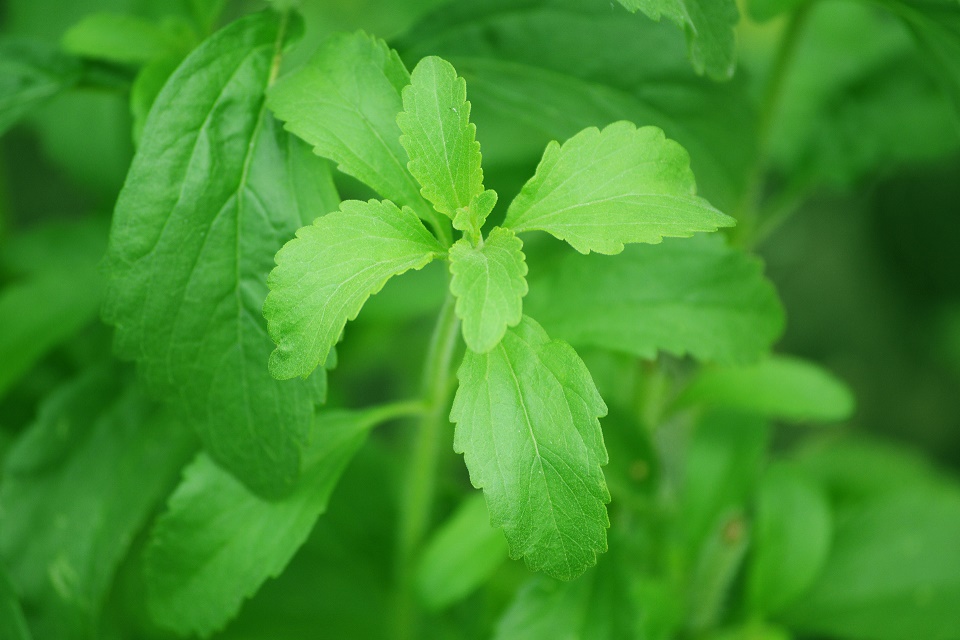
A Sweet Addition to Any Garden
From the UT Gardens
September 2017 Plant of the Month: Stevia rebaudiana
Submitted by Holly S. Jones, Manager of the Kitchen Garden, UT Gardens, Knoxville
Native to the mountainous regions of Brazil and Paraguay, Stevia rebaudiana is a tropical perennial herb that has gained wide popularity in recent years as an alternative sweetener. Stevia contains compounds that taste sweet but have almost no calories and do not affect insulin levels the same way that simple sugars do. Though it has a long history of use in South America and many other regions, the FDA only recently approved it as a “Generally Recognized as Safe” substance here in the United States. When that designation was granted in 2008, food manufacturers were able to begin adding to it to their products and since then it’s become more common. You can find liquid or powdered versions in the grocery store or, better yet, you can grow and preserve it yourself.
Best planted in rich, well-drained soil with full sun exposure, stevia matures to about two to three feet tall and wide and is generally pest and disease free. Though perennial in its native land, it is only hardy to about 15 degrees Fahrenheit and rarely survives Tennessee winters. It is readily propagated by semi-ripe cuttings, which can be overwintered in a sunny window indoors. You can also pick up a replacement at your local garden center each spring.
Like many herbs, the flavors intensify later in the season as temperatures increase. Leaves harvested in mid-June will have a less bitter aftertaste. A plant that was set out in late April should have a nice crop of leaves by early summer, and these can be preserved either by drying or by making a liquid extract. The glycosides that give stevia its sweet flavor are quite potent, and you will need to experiment with how much to add for your taste.
At UT Gardens in Knoxville, you will find this sweet herb growing in the perennial beds in the kitchen garden.
The UT Gardens includes plant collections located in Knoxville, Jackson and Crossville. Designated as the official botanical garden for the State of Tennessee, the collections are part of the UT Institute of Agriculture. The Gardens’ mission is to foster appreciation, education and stewardship of plants through garden displays, educational programs and research trials. The Gardens are open during all seasons and free to the public. For more information, see the Gardens website: ag.tennessee.edu/utg.
Contact:
Holly Jones, UT Gardens, Knoxville